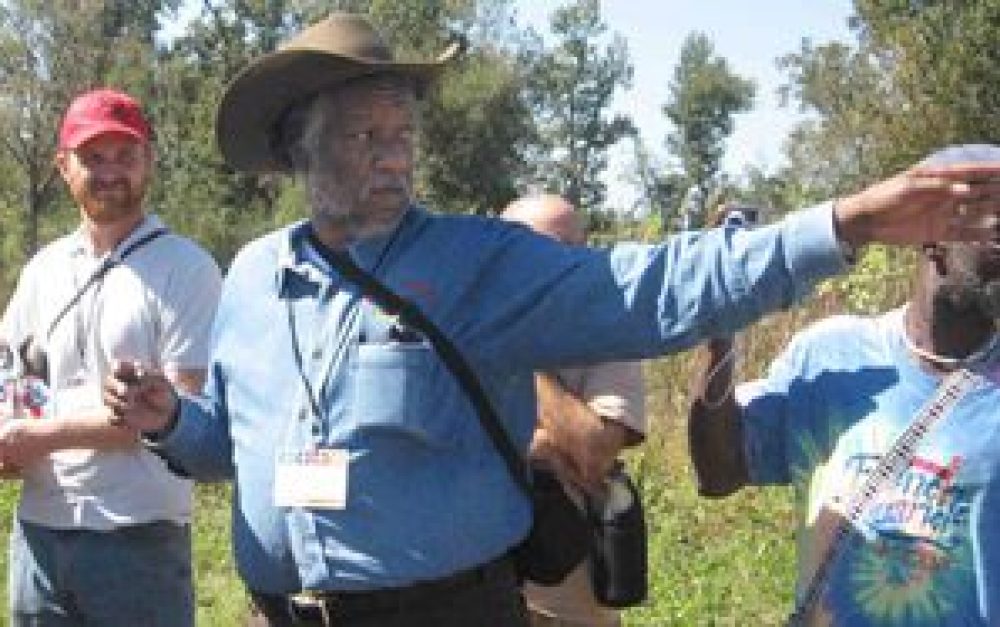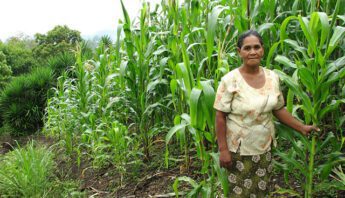I’m writing from warm, sunny New Orleans, where 900 food justice activists attending the Community Food Security Coalition conference have just wrapped up five days of workshops, conversations and field trips to the region’s innovative and indomitable farmers, fisherfolk, urban gardeners, food workers and local organizers. These brave souls are—against all odds—reinventing healthy and sustainble food systems in their communities.
On Saturday, I met with family farmers in southern Mississippi, who are among the 42 members of the Indian Springs Farmers Association. These farmers reaped a bountiful harvest of leafy greens and okra this summer (“don’t even talk about those mountains of okra!” laughed Darnella Burkett Winston, as she showed us around the farm), and are now bringing in the watermelon. Darnella’s father, Ben, explained how over 30 years ago, when he and other African American farmers discovered they were receiving far lower prices for their produce than white farmers, they took matters into their own hands: they pooled their resources and started trucking their watermelons all the way to Chicago to get a fair price. Ben Burket is now the president of the National Family Farm Coalition and a member of the Southern Federation of Cooperatives. As a successful farmer-owned cooperative, they now distribute to local markets, schools and businesses, as well as to places as far away as Boston and Toronto.
Back in New Orleans at the CFSC conference, I was thrilled to see our friends at Family Farm Defenders awarded this year’s Food Sovereignty Prize. Well-deserved honorable mentions went to The Detroit Black Community Food Security Network, ROPPA (The Network of West African Peasant and Agricultural Producers' Organizations) and the Canadian Working Group on Indigenous Food Sovereignty.
For five days, the conference fairly vibrated with the power and ingenuity of ordinary people creating vibrant community food systems, from the Gulf South to the Pacific Northwest. Workers’ rights were well represented, with inspiring presentations by the Coalition of Immokalee Workers (who have just signed a stunning landmark agreement with Pacific Tomato Grower) and the newly established Food Chain Workers’ Alliance. And while the primary focus of this conference has long been local food systems in the U.S., we enjoyed a strong turnout at our own workshop on building power to resist the U.S. and corporate push of GMOs into Africa. I co-facilitated with partners from the Community Alliance for Global Justice, WHY Hunger, Agricultural Missions and the Presbyterian Hunger Program.
Meanwhile, back at planet-Monsanto
1,000 miles away in Des Moines, Iowa, Rajiv Shah—the head of USAID—was also talking about food and agriculture, but with a very different message. Touting the government's $3.5 billion Feed the Future initiative, Shah explained that “receptive countries” are expected to collaborate with private interests to increase yields through a new green revolution. He also says the “delivery of breakthrough technologies” from the U.S. is what will benefit millions of African farmers. A strange argument to make, in light of the fact that so many family farmers in the U.S. are losing their livelihoods every year, precisely because of corporate control of technologies and the industrial agricultural system, according to the New York Times. Monsanto, for its part, is just bubbling over with excitement at this initiative.
So is a bigger green revolution really what small-scale farmers of Africa want? No, it’s not — not according to a recent farmer-led assessment of current agricultural research in Africa. Farmers across West Africa who participated in these citizen/farmer juries concluded that family farmers do not want more research into hybrid or genetically engineered seeds, nor chemical pesticides and fertilizers, but rather want public research to focus on local seeds, traditional varieties and agroecological farming.
Well that’s pretty clear. USAID and Gates: you’ve got new marching orders. If you’re really about helping African farmers, now’s probably a good time to break up with Monsanto. Oh and Bill, that probably means you better divest the $23 million in Monsanto shares you bought the other day.








